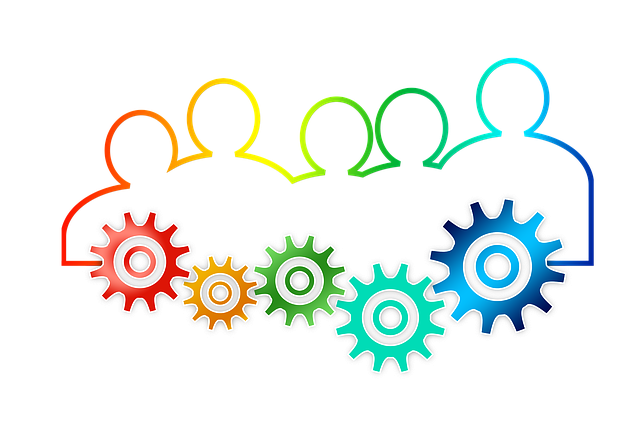This text emphasizes the importance of effective collaboration among child welfare attorneys in Oregon, DHS professionals, courts, and stakeholders to protect vulnerable youth. It advocates for building strong attorney-client relationships, open communication, shared objectives, and mutual respect. An attorney partnership guide is proposed to navigate unique dynamics, optimize collaborations, and ultimately serve the best interests of Oregon's children and families through improved case outcomes and services. Key phrases include: child welfare attorney Oregon, working with attorneys, attorney collaboration Oregon, navigating attorney relationships, child welfare legal experts, and attorney partnership guide.
In Oregon, child welfare attorneys play a pivotal role in advocating for vulnerable children and families within a complex legal framework. This comprehensive guide explores effective strategies for both new and experienced professionals navigating the intricate world of Oregon’s child welfare laws. By understanding the dynamics of attorney collaboration and building strong partnerships, legal experts can ensure seamless client representation and positive outcomes. Discover best practices for working with colleagues, managing relationships, and optimizing communication to revolutionize child welfare advocacy in Oregon.
- Understanding Oregon's Child Welfare Legal Framework
- The Role of Child Welfare Attorneys in Advocacy
- Building Effective Partnerships with Legal Colleagues
- Strategies for Seamless Collaboration and Communication
- A Comprehensive Guide to Attorney Relationship Management
Understanding Oregon's Child Welfare Legal Framework

Understanding Oregon’s Child Welfare Legal Framework is essential for any child welfare attorney looking to collaborate effectively in this state. Oregon has established a comprehensive legal system designed to protect and promote the well-being of children, with various statutes and regulations guiding the involvement of child welfare agencies and attorneys. Key aspects include the role of the Department of Human Services (DHS) in investigating and providing services, as well as the rights of both children and parents throughout the process.
Navigating these relationships requires a deep understanding of Oregon’s unique attorney-client dynamics. Child welfare cases often involve complex legal issues, requiring attorneys to work closely with DHS professionals, court systems, and other stakeholders. Effective collaboration involves open communication, clear roles and responsibilities, and a shared commitment to the best interests of the child. This attorney partnership guide emphasizes the importance of building trust, respecting expertise, and leveraging the skills of all involved to ensure successful outcomes for Oregon’s vulnerable youth.
The Role of Child Welfare Attorneys in Advocacy

Child welfare attorneys in Oregon play a pivotal role in advocating for the rights and best interests of children involved in dependency cases. They are the legal experts who guide parents, guardians, and foster care providers through complex laws and regulations, ensuring their rights are protected. These attorneys collaborate with various professionals, including social workers, medical personnel, and educators, to create comprehensive plans that promote the well-being and stability of children.
Effective advocacy requires strong attorney-client relationships and seamless collaboration among legal professionals. Navigating these partnerships is crucial for achieving positive outcomes in child welfare cases. An attorney partnership guide for Oregon should emphasize open communication, shared goals, and mutual respect to foster successful collaborations, ultimately benefiting the vulnerable youth who depend on these services.
Building Effective Partnerships with Legal Colleagues

Building strong partnerships within the legal community is essential for Oregon child welfare attorneys aiming to provide optimal representation for their clients. Effective collaboration with fellow attorneys, especially those specializing in related fields, can significantly enhance case outcomes and improve services delivered to vulnerable children and families. Navigating attorney relationships requires a strategic approach, as these partnerships can either facilitate smooth progress or create complex challenges.
Oregon child welfare legal experts often find success through working with colleagues who share a passion for advocating for children’s rights. This collaboration involves open communication, sharing resources, and combining expertise to tackle complex cases. An attorney partnership guide could include identifying compatible legal minds, establishing clear roles and responsibilities, and fostering an environment of mutual respect and trust. By doing so, child welfare attorneys in Oregon can navigate the intricate web of legal procedures more effectively, ultimately ensuring better outcomes for the youth and families they serve.
Strategies for Seamless Collaboration and Communication

In the dynamic field of Oregon child welfare law, seamless collaboration and communication between various stakeholders are essential for positive outcomes. When working with attorneys, effective partnerships can significantly enhance the representation of children and families involved in legal proceedings. Child welfare attorney partnerships in Oregon involve fostering an environment where professionals from diverse backgrounds collaborate openly, sharing insights and resources to better serve clients.
To facilitate successful attorney collaboration in Oregon, establishing clear communication channels is paramount. This includes regular case updates, coordinated meetings, and the use of digital tools for efficient document sharing and task management. By embracing a culture of partnership, child welfare legal experts can navigate complex relationships with attorneys, ensuring that the best interests of children are at the forefront of every decision. Such collaborations ultimately contribute to stronger advocacy and more favorable outcomes for Oregon’s most vulnerable populations.
A Comprehensive Guide to Attorney Relationship Management

Managing attorney relationships is a vital component for any organization, especially those in the child welfare sector. In Oregon, where there’s a high demand for skilled child welfare attorneys, effective collaboration with legal experts can significantly impact case outcomes and client satisfaction. This comprehensive guide aims to equip professionals working within the child welfare system with strategies to navigate and build strong partnerships with Oregon child welfare attorneys.
By fostering open communication channels, establishing clear expectations, and promoting mutual respect, organizations can create a collaborative environment that benefits all parties involved. Regular meetings, joint case reviews, and knowledge-sharing sessions are powerful tools for building trust and ensuring both the organization’s and the attorney’s goals are met. This partnership approach not only enhances legal support but also contributes to the overall well-being of children and families in need.






